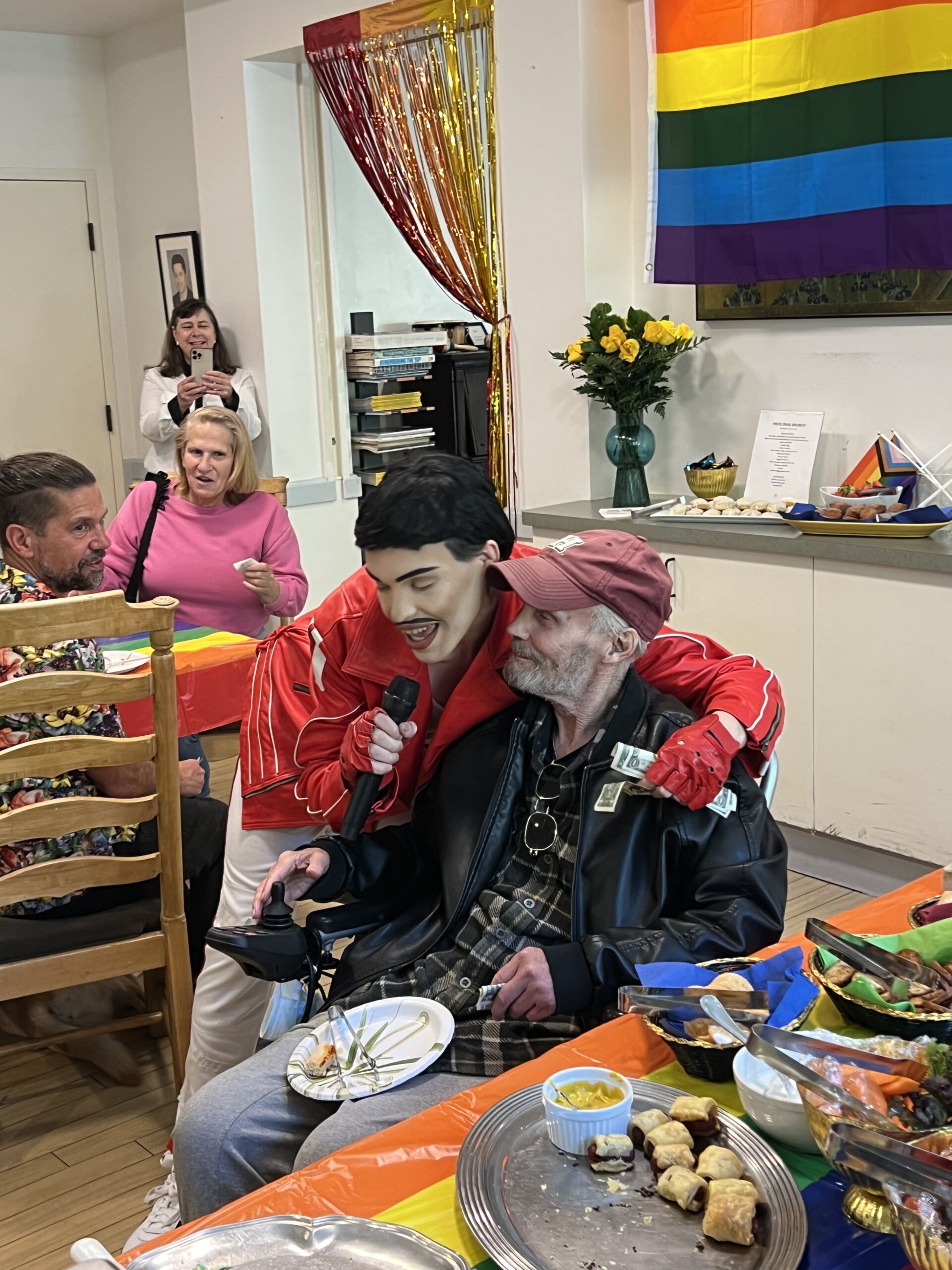This year marks the 23rd year of Maitri’s respite care program. For 23 years, we’ve had clients come to us for care and get better, able to return to independence in the community.
For our residents, graduating from Maitri is a monumental achievement. It’s a celebration of them regaining their health and getting to step back into independence. But it can be shadowed by a daunting question: What now?
Unfortunately, for many of our clients, who live with a history of housing instability and chronic illness, care has been a revolving door. They get well enough to be discharged, only to be left alone and fall back into needing help again.
At Maitri, we wanted to break that cycle. That’s why we created our BRANCH Aftercare Program.
BRANCH is our promise that the compassion our residents experience here doesn’t stop at the door. It’s our promise that graduation isn’t a goodbye.
It’s a continuation of our care to help former residents maintain their independence, health, and housing for as long as possible. As one client so wonderfully put it, “When you graduate from Maitri, you don’t really leave. You just join a different part of the family.” And this connection has become more important than ever.
Recently, federal funding cuts have eliminated entire programs our clients have come to rely upon. This includes the elimination of a key part of the continuum of care our clients need: medical case management. These case managers were lifelines, they helped clients navigate the healthcare system, manage appointments, access benefits, and maintain medication adherence. Without them, many of our clients have been left adrift and alone. This is the exact gap in care BRANCH was built to fill.
Consider the recent experience of one of our BRANCH clients, Tate. After losing his case manager, he was left completely alone to manage his medications. After a fall in his apartment, Tate needed help to manage his pain, but he didn’t have a case manager to help him anymore.
Overwhelmed and without support, Tate began to misuse opiates to cope. He was falling into a dangerous and all too familiar spiral. That is until his monthly check-in call from our BRANCH Director.
Immediately, our BRANCH Director recognized the signs of his struggle. There was no judgment–only compassion and action. Tate was invited to come to Maitri to meet with our nursing team so they could help him understand what was happening and they could assess him.
Within an hour of this phone call, Tate was at Maitri and understood what he was facing, had agreed to go to the hospital, and had a volunteer waiting with him to take a car to get the help he needed.
Today, Tate is doing better. He’s worked with his doctor to wean himself off of the opiates and has a plan to manage his pain. He’s also continuing to come to Maitri for support and is now engaging with our staff therapist to help him find other ways to cope and recover.
This is the heart of Maitri’s mission. It is compassionate, individualized care that sees the whole person. In a system with growing cracks, our BRANCH Aftercare Program ensures that our clients– mostly LGBTQ+ seniors– get the care they deserve. It’s our commitment to ensuring no one has to suffer alone.


